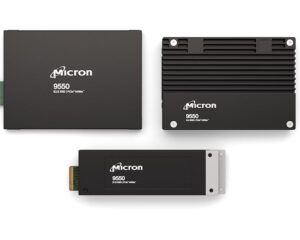The excitement surrounding the global foundry market’s exponential growth cannot be overstated. The surge in demand for cutting-edge process technologies, spurred by AI and High-Performance Computing (HPC) applications, has injected a new level of competition into this sector. This comes as Intel steps into the arena of contract chip manufacturing. A notable entrant aiming to make its mark in this fiercely competitive landscape in 2027 is Rapidus—a foundry initiative supported by the Japanese government alongside several key Japanese corporations, poised to launch its inaugural fabrication plant (fab).
Rapidus has recently shared insights on the progress of its first top-tier fab, announcing its venture into chip packaging, in addition to chip lithography. The fabrication plant, a massive ¥5 trillion ($32 billion) investment, is set to provide lithography at a 2nm node and internal packaging services for its chips—a marked deviation from the industry norm where packaging is often outsourced or handled at specialized sites.
Despite aspiring to cater to the same clientele as giants like TSMC, Samsung, and Intel Foundry, Rapidus is determined to distinguish itself by radically altering the chip production paradigm. By doing so, it aims to expedite the transition from design completion to functional chip production.
“We take immense pride in our Japanese heritage,” conveyed Henri Richard, the General Manager and President of Rapidus’s U.S. subsidiary. He highlighted the unique qualities of Atsuyoshi Koike, the company’s leader, noting his blend of quintessential Japanese qualities with an American innovation mindset. This combination positions Koike as a remarkable executive focused on fostering a nimble and responsive corporate culture.
Exclusive Focus on Leading-Edge Nodes
Rapidus sets itself apart by dedicating its efforts solely towards state-of-the-art manufacturing technologies. Initially, it will offer a 2 nm node in 2027 (phase 1), followed by a transition to 1.4 nm (phase 2). This strategy diverges from the broad range of process offerings typically available from competitors like Intel, aiming to capture a niche market of developers that prioritize advanced production nodes for their designs. The success of this business model hinges on the growing market for chips fabricated using advanced nodes, with projections indicating substantial market opportunities ahead.
Richard remains optimistic about Rapidus’s market position, buoyed by the positive feedback from Electronic Design Automation (EDA) partners and potential clients. The industry’s eagerness for alternative solutions from a fully independent foundry underscores the welcoming environment for Rapidus’s entry.
Notably, Rapidus plans to forgo the use of ASML’s High-NA Twinscan EXE lithography scanners for its 2 nm production line, instead opting for ASML’s proven Low-NA scanners. This choice aims to balance cost and efficiency, even as it introduces the need for EUV double patterning. Despite these considerations, analysts at SemiAnalysis perceive this approach as a potentially more economical alternative.
“We are content with our decision for the 2nm node, but remain open to exploring other options for the 1.4 nm node,” Richard stated. This places Rapidus in a category of manufacturers taking a cautious approach towards High-NA EUV tools, akin to the strategies of TSMC and Samsung Foundry.
Integrating Advanced Packaging in Leading-Edge Fabrication
Rapidus also stands out for its commitment to integrating advanced packaging technologies within its fab, catering to the sophisticated needs of AI and HPC chip designs. This initiative positions Rapidus uniquely in the industry, planning to execute both chip production and packaging within the same facility—an innovation in a sector where these processes are typically separated.
“Our goal is to reinvent the integration of chip design, fabrication, and packaging processes to streamline project completion, ensuring quality, high yield, and minimal cycle times,” Richard elaborated. This holistic approach aims to simplify logistical challenges and optimize production timelines, distinguishing Rapidus in the competitive foundry landscape.



